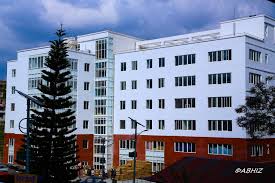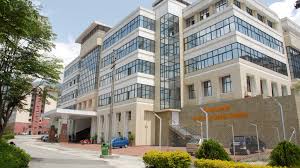Nepal, a land of scenic beauty and rich cultural heritage, has become a popular destination for students aspiring to pursue an MBBS (Bachelor of Medicine, Bachelor of Surgery). With its globally recognized medical programs, affordable tuition fees, and modern facilities, Nepal offers an excellent opportunity for medical students worldwide. This blog explores the key aspects of studying MBBS in Nepal, including eligibility criteria, top medical colleges, admission process, and benefits.
Globally Recognized Degrees: Medical degrees from Nepalese universities are recognized by major global bodies like the World Health Organization (WHO), Medical Council of India (MCI), and Nepal Medical Council (NMC).
Affordable Tuition Fees: Compared to many Western countries, the cost of medical education in Nepal is significantly lower, making it an attractive option for students from diverse economic backgrounds.
No Language Barrier: The medium of instruction for MBBS courses in Nepal is English, which is beneficial for international students.
Quality Education: Nepal’s medical colleges offer a robust curriculum, experienced faculty, and hands-on clinical training in well-equipped hospitals.
Cultural Proximity: For students from neighboring countries like India, Nepal offers cultural similarities, making it easier to adapt and feel at home.
To enroll in an MBBS program in Nepal, candidates typically need to meet the following criteria:

5. Research and Development
Research is a cornerstone of IOM’s mission. The institute encourages faculty and students to engage in innovative research projects aimed at addressing health challenges prevalent in Nepal and beyond. Key research areas include
B.P. Koirala Institute of Health Sciences (BPKIHS): Known for its excellent infrastructure, experienced faculty, and strong focus on research and clinical practice.Established in 1993, BPKIHS was named after the late Prime Minister of Nepal, Bharat Ratna B.P. Koirala, in honor of his contributions to the nation’s healthcare sector. Situated in Dharan, Sunsari district, BPKIHS was founded with the vision of providing accessible and high-quality healthcare services, medical education, and research facilities to the people of Nepal and beyond. Over the years, the institute has grown exponentially, earning national and international acclaim for its exemplary contributions to the health sciences.
BPKIHS offers a diverse range of undergraduate, postgraduate, and doctoral programs catering to various disciplines in health sciences. Some of the key academic programs include:
Undergraduate Programs:

BPKIHS boasts a world-class infrastructure comprising modern facilities and cutting-edge technology to support its academic, research, and clinical endeavors. Key facilities include:
Kathmandu University School of Medical Sciences (KUSMS): Offers a variety of medical programs and is known for its research contributions and modern teaching facilities.KUSMS was established in 1994 under Kathmandu University, one of Nepal’s leading universities. Located in Dhulikhel, KUSMS was founded with the vision of producing skilled healthcare professionals and promoting innovative research to address the healthcare needs of Nepal and the region. Over the years, the school has expanded its programs and facilities, establishing itself as a center of excellence in medical education and healthcare.
KUSMS offers a wide range of undergraduate, postgraduate, and doctoral programs in various fields of health sciences. These programs are designed to equip students with the knowledge, skills, and competencies required to excel in their respective fields.
Research is a cornerstone of KUSMS’s mission, with faculty and students actively engaged in a wide range of research projects. The institution fosters a research-oriented environment and collaborates with national and international organizations to advance medical knowledge and improve healthcare practices.

KUSMS offers a wide range of undergraduate, postgraduate, and doctoral programs in various fields of health sciences. These programs are designed to equip students with the knowledge, skills, and competencies required to excel in their respective fields.
Kathmandu University School of Medical Sciences (KUSMS) is a leading institution in medical education, research, and healthcare delivery. With its robust academic programs, state-of-the-art facilities, and strong focus on research and community service, KUSMS continues to play a vital role in shaping the future of healthcare in Nepal and beyond. Whether you are an aspiring medical student, a healthcare professional, or a member of the community, KUSMS offers a pathway to excellence and a commitment to improving health outcomes.
Manipal College of Medical Sciences (MCOMS): A collaborative effort between the Manipal Group and the Government of Nepal, providing high-quality medical education.Established in 1994, MCOMS is part of the Manipal Education and Medical Group, a globally recognized network of educational institutions. The college was founded with the vision of offering world-class medical education and healthcare services in Nepal. Over the years, MCOMS has grown significantly, gaining recognition for its academic excellence, modern facilities, and commitment to research and healthcare.
MCOMS offers a range of undergraduate and postgraduate programs designed to equip students with the knowledge and skills necessary for successful careers in medicine and healthcare.
Research is a fundamental aspect of the academic environment at MCOMS. The institution encourages faculty and students to engage in research activities that contribute to medical knowledge and improve healthcare outcomes. Key research areas include:

MCOMS boasts state-of-the-art infrastructure and facilities that support its academic, research, and clinical activities. Key facilities include:
Manipal College of Medical Sciences (MCOMS) stands out as a leading institution in medical education, research, and healthcare delivery. With its robust academic programs, state-of-the-art facilities, and a strong focus on research and clinical practice, MCOMS continues to play a pivotal role in shaping the future of healthcare in Nepal and beyond. Whether you are an aspiring medical student, a healthcare professional, or a researcher, MCOMS offers a dynamic and supportive environment for achieving excellence in the medical field.
Application Submission: Submit the application form online or offline as per the respective university’s guidelines.
Entrance Examination: Appear for and pass the required entrance exams.
Merit List: Based on entrance exam scores and academic performance, universities release a merit list.
Counseling and Interview: Shortlisted candidates may need to attend counseling sessions and interviews.
Final Admission: Pay the required fees and complete the documentation process to secure admission.
Pursuing an MBBS in Nepal is a promising option for aspiring doctors seeking quality education at an affordable cost. With its globally recognized degrees, modern facilities, and experienced faculty, Nepal stands out as a favorable destination for medical education. Whether you are from South Asia or beyond, Nepal’s medical colleges offer a pathway to a successful medical career.
For more information on specific universities, admission deadlines, and detailed eligibility criteria, visit the respective university websites or contact their admission offices. Embark on your journey to becoming a doctor in the beautiful and culturally rich land of Nepal . . Confirm your admission in these universities If you have any questions or need personalized advice, feel free to contact us MBBS Mantra +91 7988492838
+91 79884 92838
+7-7476968536